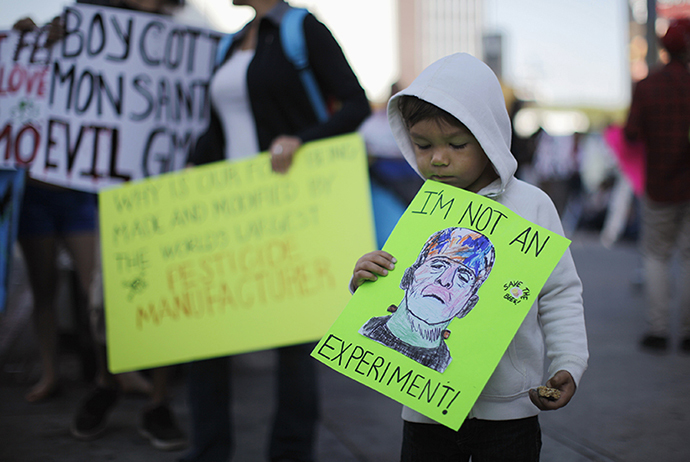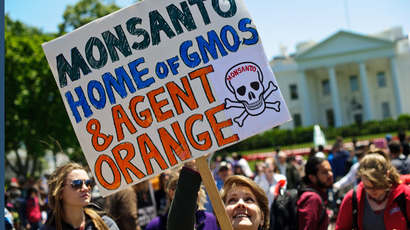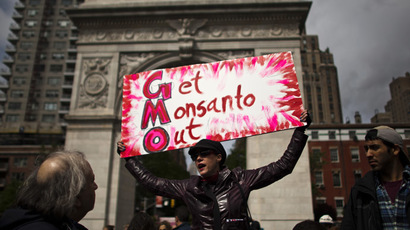'No Monsanto!': World marches against GMO food
Thousands took to streets across the world’s cities on Saturday to protest the use of GMO products, with Giant Monsanto being the main target. Over 50 countries have been taking part in the march for world food day, and across 47 different US states.
Follow RT's LIVE UPDATES on the March Against Monsanto campaign
Berlin, Strasbourg, Chicago, London, Sydney and Mumbai are just a few of the 500 cities worldwide involved in the rallies, with each one drawing hundreds.
The demonstrators have been calling for the permanent boycott of Genetically Modified Organisms (GMOs) and “other harmful agro-chemicals,” according to March Against Monsanto’s official webpage. Protesters wielded large banners denouncing GMO products, and donned fancy dress: In Washington DC a group dressed as bees to highlight the impact of insecticides on bee populations.
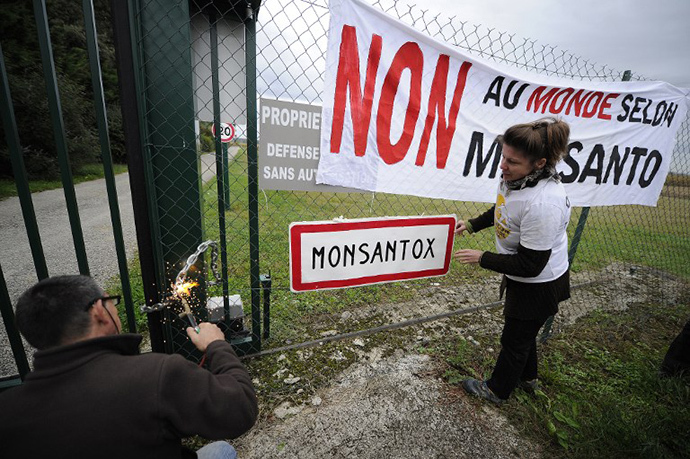
Protesters in Washington told RT’s Anissa Naouai that Monsanto lobbyists were hard at work even though the government was shut down. March organizers also said that Saturday’s event was just the beginning, and that the momentum for the protests would build.
The rallies come four days ahead of World Food Day on Oct. 16 and are a direct attack on what the organizers term Monsanto’s “predatory business,” genetically modified organisms (GMOs) and other harmful pesticides, which threaten “health, fertility and longevity.”
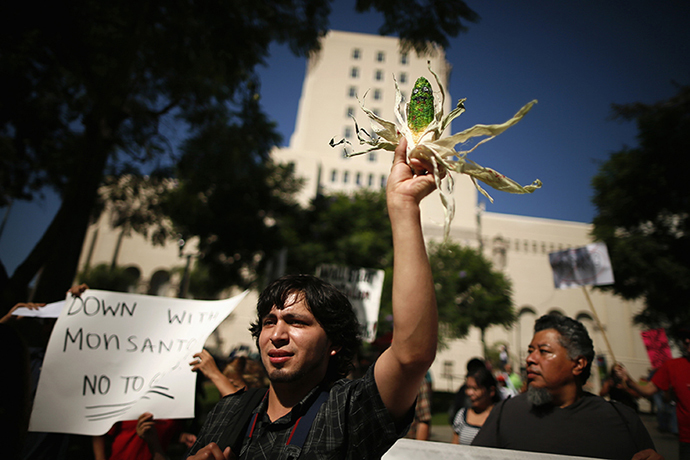
In Berlin, people expressed displeasure at the food giant for a
number of reasons, ranging from long-term health concerns to the
chemicals used in Monsanto products.
“There a Smartstax corn that Monsanto has made…it is a corn
that resists six different types of herbicide, so you can spray
it with six different chemicals and it won’t die,” Heidi
Ostermannm, a nutritionist participating in the Berlin march told
RT.
“It also produces two insecticides in its own kernels and you
can’t wash it off – I don’t even know if technically that’s food.
In my mind as a nutritionist, that’s no longer food,” she
said.
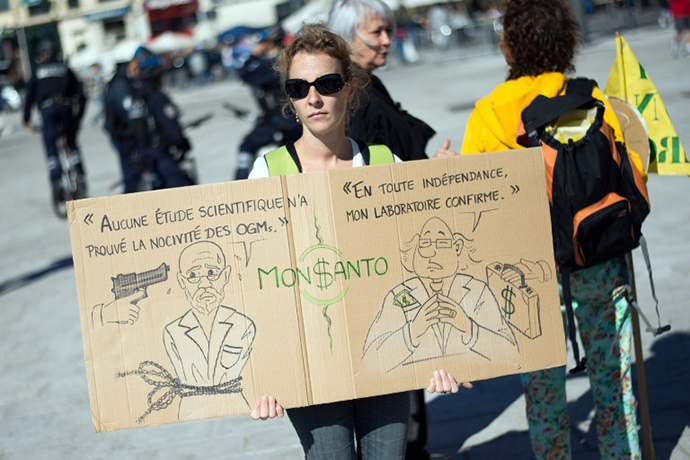
Dietrich Wittel, vice president of the True Food Foundation cited
experiments conducted on rats, bringing a large poster with him
showing the tumors suffered by the animals subject to being fed
Monsanto corn.
“There are subtle signs of organ damage even in 90 days. But
in two years, the lifetime of a rat is shortened – they have
massive organ damage, massive breast tumors in the female rats,
and that is really, really frightening,” he said, going on
to discuss the effects on larger animals.
“Recently, a study from Australia has shown that pigs that
are fed these corn products get massive stomach ulcers…. we have
a much longer lifespan that a rat. If we are waiting for cancer
to show as a result of GMOs, we’ve got to wait,” he said.
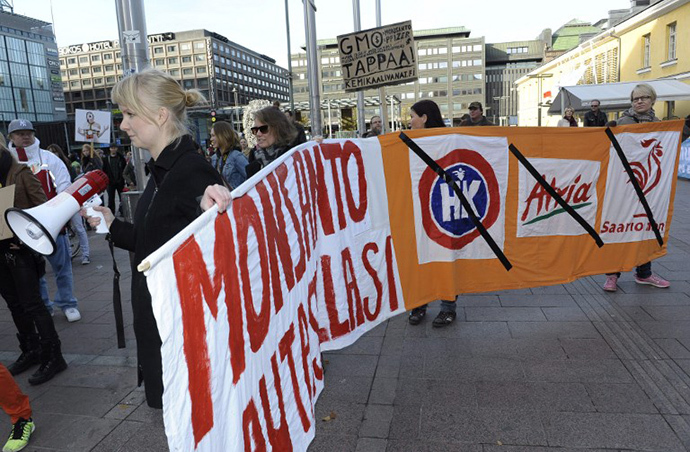
October is a particularly significant month for US protesters, as
Agent Orange Awareness Month is being promoted by the Children of
Vietnam Veterans Health Alliance (COVVHA).
“Monsanto was one of the seven chemical companies who
manufactured Agent Orange which was laced with one of the most
deadly chemicals known to man, dioxin. Monsanto, the other six
companies, and the U.S. government, are responsible for the slow
burn genocide of Vietnam Veterans, their children and
grandchildren,” March Against Monsanto alleged.
Kids against GMO #MarchAgainstMonsanto#WashingtonDCpic.twitter.com/RUfOBy5Aot
— Anissa Naouai (@AnissaNowRT) October 12, 2013
A previous anti-Monsanto protest was held in May. It started as a
small event, but turned into a global campaign with over 2
million people in 436 cities, across 52 countries, joining the
rallies.
